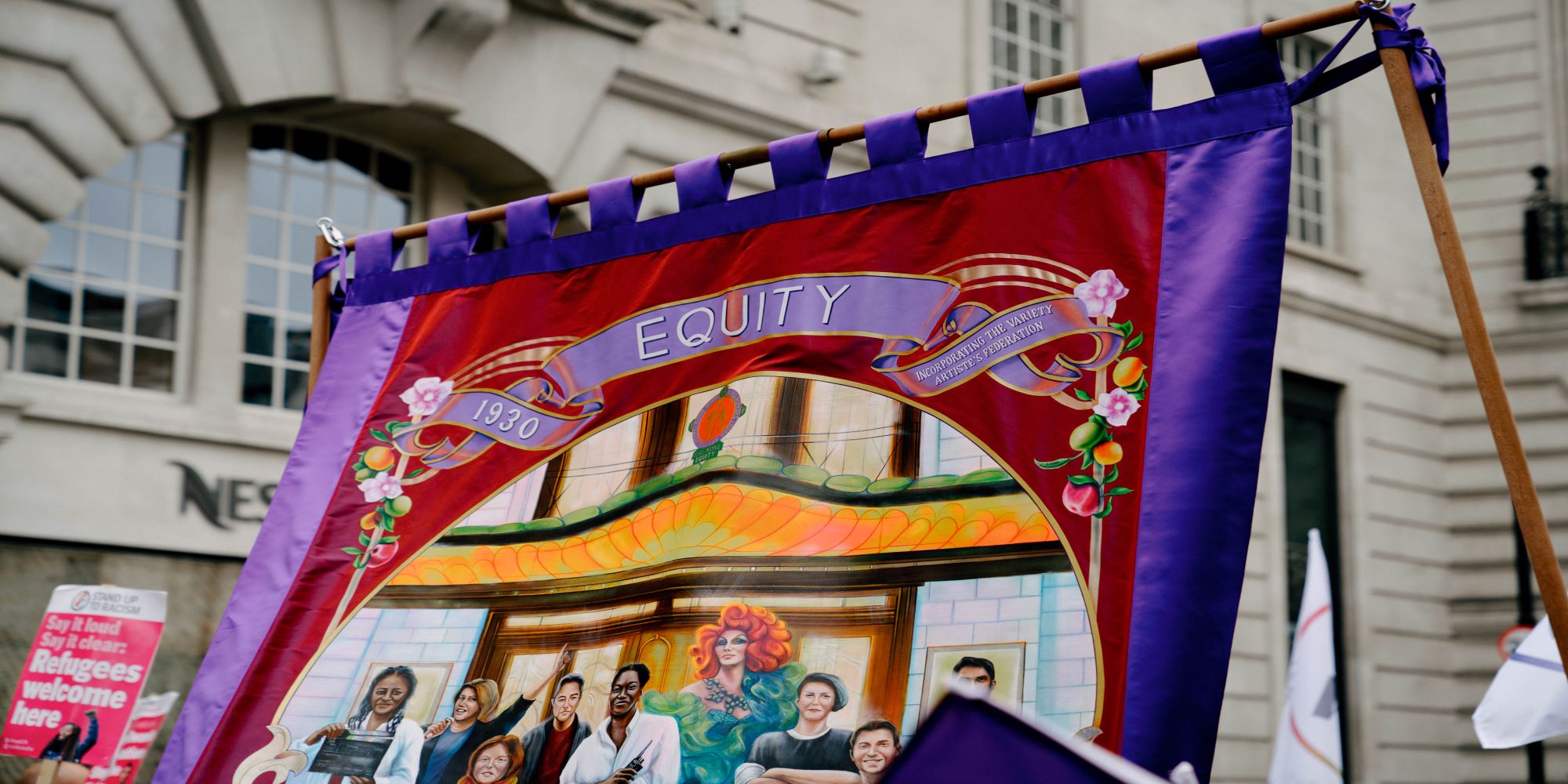Today, Equity launches in Parliament 'Not here to help', a report by Equity and the University of Warwick examining creative and cultural workers’ experiences of Universal Credit and making recommendations for reform.
Our research has found that serious flaws in Universal Credit, the government’s flagship social security reform, are pushing workers across the cultural and creative industries into deep financial hardship.
Of those subject to the Universal Credit rule known as the ‘Minimum Income Floor’ (MIF), which reduces the amount of support that self-employed creatives are eligible for:
- 41% had gone without essential items such as food or utilities.
- Nearly half have been unable to pay the bills.
- 5% had been forced to leave their home.
'Not here to help'
Ground-breaking research report into Equity members' experiences of Universal Credit, showing how the social security system fails performers
One participant told researchers:
“I no longer have my own accommodation as this is not something I can afford. I live out of my car. And the offer of others to sleep on their couch or spare bed for a couple of nights… I rely on free car parks (which there are not many), and public bathrooms. Arts venues which offer free studio space are another space I rely on - finding somewhere to work from, keep warm, and charge equipment.”
Another described it as:
“Devastating! Had to turn to a food bank for 8 months as I had no income and no support from Universal Credit”.
Despite driving serious financial hardship, four out of five respondents in this research said that UC had not helped them to work in the industry. This strongly contrasts with experiences under the previous social security system (before the introduction of UC), which three quarters of respondents said had helped them to work in the past.
I no longer have my own accommodation as this is not something I can afford. I live out of my car.
Research participant
The social safety net has historically been a vital tool in supporting creative and cultural workers to build a sustainable career in these industries. 63% of those surveyed said that they had been in receipt of social security at some point in their lives, usually on an intermittent basis. The safety net underpins industries which contribute nearly 6% of UK GDP.
This support was historically critical to allowing workers to sustain themselves in industries defined by low pay. The data collected by Equity and the University of Warwick found that the average earnings in the cultural and creative industries are £15,270 (after expenses, but before tax). This is less than half of the median pay for UK full time employees of £33,280. 94% of respondents earned less than this amount.
The report recommends urgently scrapping the Universal Credit MIF, which is generating such severe hardship, and reviewing how the social security system treats atypical workers.
Responding to the research, actor Julie Hesmondhalgh said:
“It’s very difficult to talk now about barriers to access to the arts because actually for me those were very few at the time, because the system was incredibly supportive of people like me from working class families in the regions. My parents both worked, they were blue collar workers, and I not only got a full local authority grant to go to drama school, I also got my accommodation paid for as well, which is unbelievable. So that in itself lifted all barriers.
“I don’t think that people generally even sign on these days, I think a lot of people try and avoid Universal Credit completely because of the bureaucracy and the Kafkaesque nature of applying for it, waiting for it, getting it, and being forced to job seek in areas that aren’t your skill set in any way. Actually, back then, because it was a benevolent system – although not flawless of course – we were able to sign on and get the dole and housing benefit and work ridiculously long and committed hours. And we’d go and sign on and we’d say “we’re building this theatre, we’re creating work, we’re inviting people to see it, from this will come opportunities for paid work in the future,” and that was enough.
“You look at young people now in London and they have to do three or four jobs in order to just meet the rent and survive. So for me, whenever I talk of lack of support for emerging artists I always talk not just about the idea of grants and the idea of access and audition fees and all those really, really important things that are huge blocks to access now, but also what happens after that and just those periods of time when you’re not working. The social security system now is so punitive and so difficult to access, and the narrative and the culture is so much about people cheating. And it’s actually pounds and pence compared to the people who are creaming off millions off the top, it’s absolute madness.”
A lot of people try and avoid Universal Credit completely because of the bureaucracy and the Kafkaesque nature of applying for it, waiting for it, getting it, and being forced to job seek in areas that aren’t your skill set in any way.
Julie Hesmondhalgh
Commenting on the research, Equity’s General Secretary, Paul W Fleming said:
“The experiences that Equity members shared with us for this ground-breaking research were appalling. Experiences of financial hardship and debt, stress and anxiety, and the impossibility of navigating the very system of social security that we are all supposed to be able to rely on in times of need.”
“We all pay into the system when times are good, so that we can receive support when needed. This is a fundamental principle of any decent society, and one that Equity will not abandon.”
“Equity cannot stand by whilst artists are treated as second-class citizens by the social security system. For all artists, and all workers, we must fight to win a decent safety net.”
Commenting on the research, Dr Heidi Ashton, associate Professor at the Centre for Cultural and Media Policy Studies, University of Warwick, said
“There are well documented inequalities in this sector particularly in relation to socio-economic status (class). The current social security system is forcing those who are most financially vulnerable out of the sector, restricting access to these careers.”
“Data from this research revealed the high levels of training and skill that workers possessed. Respondents spent on average 12.1 hrs a week training and actively pursuing work as an ongoing commitment to the profession. This part of the Creative Industries is reliant upon freelance workers who provide a highly skilled and flexible workforce.”
“The project revealed how, in the past, people from working class backgrounds relied on social security in the early stages of their careers or in moments of hardship due to the precarious nature of freelance work. Without this safety net people without other financial means are either leaving the sector entirely or face losing their homes.”
Read the reportIn the past, people from working class backgrounds relied on social security in the early stages of their careers or in moments of hardship ... Without this safety net, people without other financial means are either leaving the sector entirely or face losing their homes.
Dr Heidi Ashton, associate Professor at the Centre for Cultural and Media Policy Studies, University of Warwick




